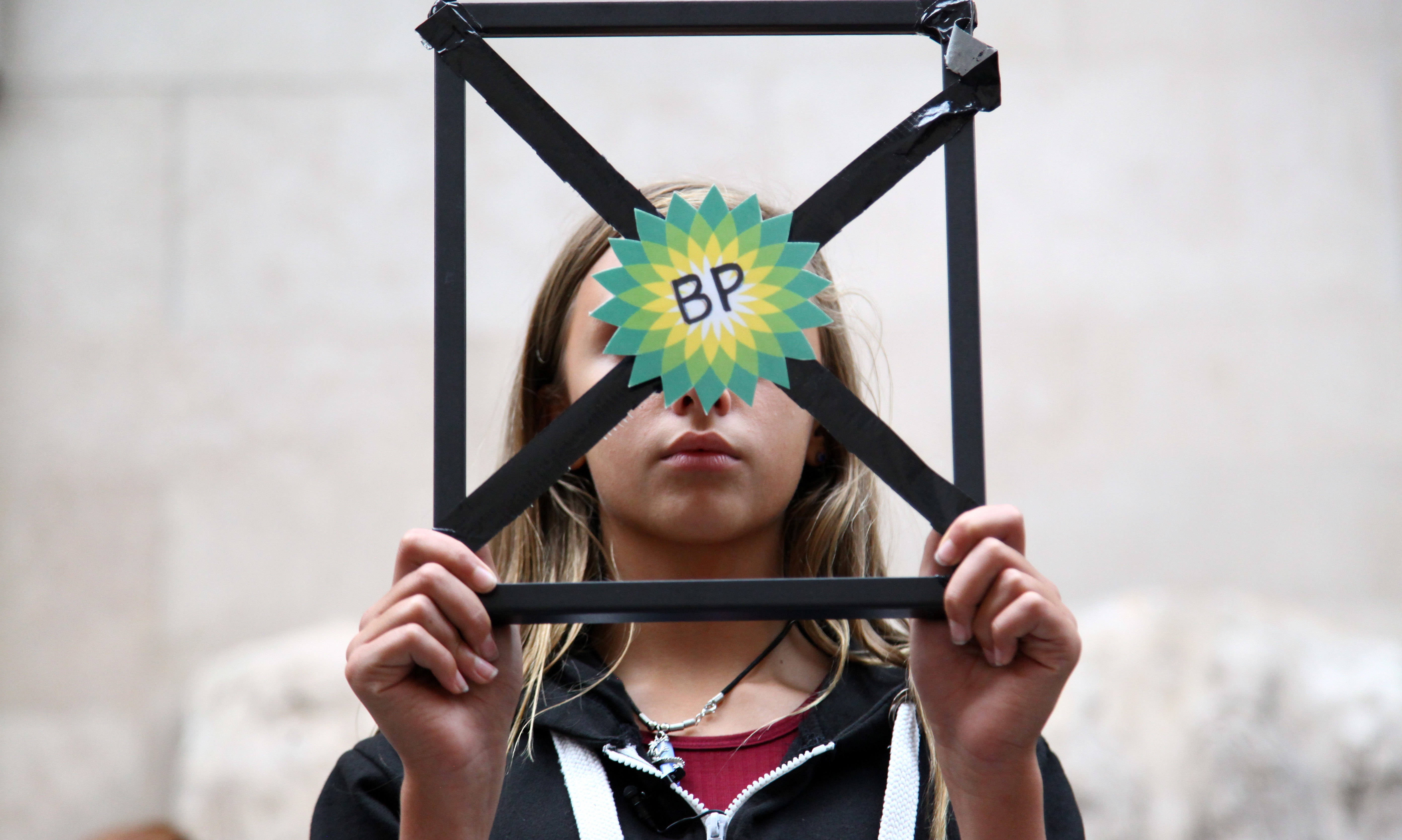June 2018
Even as efforts to tackle climate change intensify, BP is exploring for new drilling opportunities around the world.
Climate and energy analysts say that if currently-planned oil, coal and gas projects go ahead this will take us beyond the Paris Agreement goal of limiting global warming to two degrees, let alone the more ambitious but safer target of 1.5 degrees. But that hasn’t stopped oil and gas giant BP exploring for new fossil fuels.
BP’s 2017 financial report shows the company spent over $2bn on exploration alone, boasting that the ‘cumulative discovery of around 1 billion BOE [Barrels of Oil Equivalent] was BP’s largest since 2004’. The company plans to spend a massive £41 billion on exploring for new oil alone in the next decade. Meanwhile, its expenditure on renewables counts for just 3% of its overall investment.
If that wasn’t bad enough, as more of the world’s fossil fuel reserves are depleted, BP is resorting to increasingly risky projects in ever more high-risk and sensitive environments.
Many people might have heard of ‘extreme energy’ reserves like the Canadian ‘tar sands’, where BP operates the Sunrise project. It’s linked to a major tar sands refinery that then sends oil out across North America through a network of highly controversial pipelines. But it doesn’t stop there.
BP has been lobbying the Trump administration hard for the right to drill in the treacherous Arctic Ocean and the Arctic National Wildlife Refuge, a pristine and vulnerable area of Northern Alaska where the native Gwich’in people are strongly opposed to oil exploitation. It is just along the coast from where BP spilled 222,000 gallons of oil in 2006.
For the Gwich’in people, the Arctic Refuge coastal plain is sacred ground. We call it “Iizhik Gwats’an Gwandaii Goodlit,” or “The Sacred Place Where Life Begins.” For thousands of years, my people have lived along the migratory route of the Porcupine caribou herd and depended on the herd for our food security and way of life. – Bernadette Demientieff, Executive Director of the Gwich’in Steering Committee
BP holds two of the four offshore leases to drill in the Great Australian Bight which, although it put plans to drill there on hold in 2016, it says remains a prospect. Evidence shows that up to 750km of coastline could be at risk from an oil spill, and BP even claimed in an environmental plan that clean-up activity after a spill could be a ‘welcome boost for local economies’.
BP has also recently been given the green light for its deep sea drilling ambitions off the coast of Nova Scotia, where it has already had a spill.
In the Brazilian Amazon, BP, along with Total and Petrobras, holds licences in the Foz do Amazonas region, but exploration plans have been delayed by the discovery of a unique coral reef.
BP continues to drill deeper and in more ecologically sensitive areas than ever before, even as the world warms.
